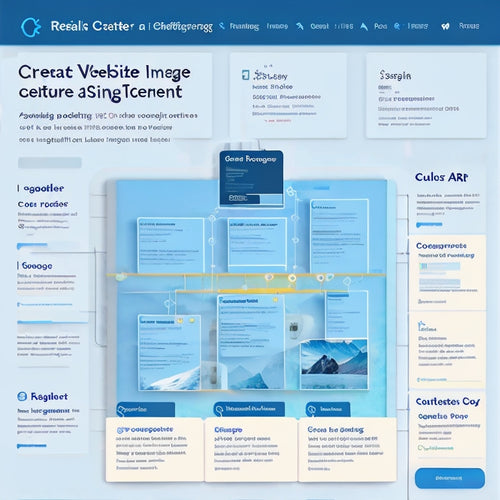
Elevate Your Ecommerce With Online Course Integration
Share
By integrating online courses into your ecommerce strategy, you can elevate customer satisfaction, boost sales conversions, and establish your brand as an authority in your industry. You'll simplify the onboarding process, discover new revenue streams, and create valuable digital assets that drive engagement and loyalty. With personalized learning experiences, interactive modules, and tailored content, you'll build a loyal customer base that drives long-term growth. By streamlining product knowledge sharing and measuring course impact on sales, you'll optimize your strategy for maximum ROI. Take the first step towards transforming your ecommerce business – explore the full potential of online course integration.
Key Takeaways
• Integrate online courses to enhance customer satisfaction, retention, and loyalty, leading to increased sales conversions and brand authority.
• Simplify customer onboarding with interactive tutorials, personalized support, and customized learning paths to boost engagement and loyalty.
• Unlock new revenue streams by diversifying product offerings with premium content, driving revenue growth, and expanding the customer base.
• Create valuable digital assets, such as high-quality content and actionable insights, to establish authority, build trust, and provide engaging experiences.
• Streamline product knowledge sharing with easily digestible content, visual guides, and interactive tutorials to provide a seamless customer experience.
Benefits of Integrated Learning
By integrating ecommerce with online courses, you can access a multitude of benefits that enhance the overall learning experience and drive business growth. One significant advantage is improved customer satisfaction, which stems from providing a seamless and all-encompassing learning experience. When customers feel supported and engaged, they're more likely to return to your platform, leading to enhanced retention rates. This, in turn, fosters increased brand loyalty, as customers develop a deeper connection with your brand.
Moreover, integrated learning experiences can lead to boosted sales conversions. By providing valuable educational content, you establish your brand as an authority in the industry, increasing trust and credibility with potential customers. This trust translates to increased sales, as customers are more likely to purchase from a brand that has invested in their education and growth.
Simplifying Customer Onboarding Process
How do you secure that customers smoothly shift from interested learners to active participants in your online courses, while minimizing frustration and confusion throughout the onboarding process?
The key is to create a seamless and intuitive experience that sets them up for success. This starts with user-friendly tutorials that provide step-by-step guidance, eliminating any confusion or uncertainty. Additionally, offer personalized support through multiple channels, such as email, chat, or phone, to address any questions or concerns they may have.
To further streamline the onboarding process, create interactive modules that engage customers and keep them motivated. These modules should be part of customized learning paths that cater to each individual's learning style and goals. By doing so, you'll secure that customers quickly understand the value of your online courses and are more likely to continue their learning journey.
A well-designed onboarding process not only enhances the customer experience but also increases the chances of long-term engagement and loyalty. By simplifying the onboarding process, you'll be able to convert interested learners into active participants, leading to increased customer satisfaction and ultimately, business growth.
Unlocking New Revenue Streams
With online course integration, you can access new revenue streams by diversifying your product offerings and creating premium content that resonates with your target audience. This strategic move can drive revenue growth by attracting new customers and increasing average order value. By offering high-quality courses, you can establish your brand as an authority in your industry, fostering customer retention and loyalty.
Moreover, online course integration enables you to tap into new markets, expanding your customer base and increasing brand visibility. As you venture into new territories, you'll open up opportunities for market expansion, solidifying your position as a market leader.
Enhancing Customer Engagement Strategies
You can supercharge customer engagement by incorporating interactive online courses that encourage participation, foster a sense of community, and provide personalized learning experiences. This approach not only increases customer interaction but also helps you understand their needs and preferences better.
By offering tailored content, you can create a sense of belonging, making customers more invested in your brand. Interactive engagement strategies, such as gamification, quizzes, and discussions, can be used to break the ice and encourage customers to share their experiences. This, in turn, helps you gather valuable feedback and improve your products or services.
Personalized experiences can be achieved by using customer data to create customized learning paths, recommendations, and offers. This level of customization shows customers that you care about their individual needs, leading to increased loyalty and retention. By integrating online courses into your ecommerce strategy, you can take customer engagement to the next level, driving long-term growth and success.
Creating Valuable Digital Assets
By developing high-quality digital assets, such as video lessons, eBooks, and interactive simulations, ecommerce businesses can establish authority, build trust, and differentiate themselves in a crowded online marketplace.
You can create valuable digital assets that provide actionable insights, solving specific pain points for your customers. This will position your brand as a thought leader in the industry, making it more relatable and trustworthy.
When creating digital assets, focus on providing digital training that's engaging, informative, and easy to consume. This can include video tutorials, webinars, or even podcasts.
You can also develop content creation templates, such as worksheets, checklists, or cheat sheets, that customers can use to achieve specific goals. By offering these valuable resources, you're building a loyal customer base that will appreciate your expertise and return for more.
Streamlining Product Knowledge Sharing
As you integrate online courses into your ecommerce platform, you'll need to guarantee that complex product information is shared efficiently with your team and customers. You can achieve this by simplifying complex product info into easily digestible chunks, making it accessible to everyone.
Simplify Complex Product Info
Complex product information can overwhelm customers, making it important to distill intricate details into easily digestible content that facilitates informed purchasing decisions.
You can simplify complex product info by incorporating visual product guides and interactive tutorials that break down complex features into bite-sized, easily understandable chunks. This approach enables customers to engage with your products in a more immersive and interactive way, reducing the likelihood of confusion and increasing the chances of a sale.
To further enhance the customer experience, consider creating user-friendly manuals and detailed FAQs that provide clear, concise answers to common questions. By doing so, you'll empower customers to find the information they need quickly and effortlessly, reducing friction and increasing trust in your brand.
Centralize Team Knowledge Base
You can establish a single source of truth for your team by centralizing your knowledge base. This ensures everyone accesses the same accurate and up-to-date product information to provide consistent customer support.
This centralized hub eliminates knowledge silos. Here, team members might've different understandings of product features, benefits, or troubleshooting solutions. By streamlining product knowledge sharing, you facilitate seamless team collaboration and knowledge retention.
When new team members join, they can quickly get up to speed on product information, reducing the learning curve and minimizing the risk of misinformation. Centralizing your knowledge base also helps to identify and fill knowledge gaps, ensuring that your team is always equipped to handle customer inquiries effectively.
Furthermore, it enables you to track changes and updates to product information, ensuring that everyone is on the same page. By doing so, you can provide exceptional customer experiences, build trust, and drive loyalty.
Building Loyal Customer Communities
When building loyal customer communities, you're not just selling products - you're cultivating a network of loyal advocates.
By tapping into member potential, fostering meaningful connections, and nurturing lasting bonds, you'll create a loyal customer base that drives repeat business and fuels growth.
To achieve this, you'll need to develop a thorough strategy that incorporates these key elements and sets your brand up for long-term success.
Unlock Member Potential
How do online course creators and ecommerce businesses tap into the collective energy of their customers to foster a loyal community that drives growth and retention? The answer lies in releasing member potential. By creating an environment that encourages member engagement and personalized learning, you can build a loyal community that will drive your business forward.
Here are a few strategies to get you started:
-
Personalized learning paths: Offer customized learning experiences tailored to individual members' needs and goals.
-
Interactive content: Incorporate quizzes, gamification, and live sessions to keep members engaged and motivated.
-
Member showcases: Highlight members' achievements and progress to inspire others and create a sense of community.
- Exclusive rewards: Offer loyalty points, discounts, or early access to new products to show appreciation for members' loyalty and participation.
Foster Meaningful Connections
By empowering members to share their experiences and connect with like-minded individuals, ecommerce businesses and online course creators can cultivate an ecosystem that fosters meaningful connections and loyal customer communities. This community building strategy allows you to create a loyal customer base that will advocate for your brand.
By providing a platform for personalized learning, you can create a sense of belonging among your customers, increasing customer loyalty and retention.
You can achieve this by incorporating features such as discussion forums, social media groups, and live events that encourage interaction among members. This will enable them to form connections, share knowledge, and learn from each other's experiences.
As you nurture these relationships, you'll build trust and credibility with your customers, leading to long-term loyalty. By leveraging online courses and community building, you can create a loyal customer community that will drive growth and revenue for your ecommerce business.
Nurture Lasting Bonds
To build a loyal customer community, you need to create an environment where customers feel valued, supported, and empowered to grow, which in turn fosters lasting bonds between them and your ecommerce business. This is achieved by prioritizing customer retention through personalized learning experiences that cater to their unique needs and interests. By doing so, you'll encourage continuous education and skill-building, leading to increased brand loyalty.
Here are some strategies to help you nurture lasting bonds with your customers:
-
Offer exclusive content: Provide access to premium online courses, webinars, or workshops that address specific pain points or interests.
-
Foster a sense of belonging: Create a private community or forum where customers can connect, share ideas, and collaborate on projects.
-
Recognize and reward progress: Implement a points-based system or badges that acknowledge customers' progress and achievements.
- Solicit feedback and insights: Regularly ask customers for input on new products, services, or educational content to make them feel heard and valued.
Measuring Course Impact on Sales
You can accurately assess the effectiveness of your online course by tracking specific sales metrics that reveal its impact on your ecommerce business. By doing so, you'll gain valuable insights into how your course is driving sales, increasing customer engagement, and ultimately, boosting revenue.
To measure course impact, you should be tracking metrics such as average order value, conversion rates, and customer lifetime value. Analyzing data from these metrics will help you identify areas of improvement and optimize your course content to drive even more sales.
Moreover, you can use data to segment your customers based on their course engagement levels, allowing you to create targeted marketing campaigns that resonate with each group. For instance, you can offer exclusive discounts to customers who've completed a specific course module, encouraging them to make a purchase.
Frequently Asked Questions
Can Online Courses Be Integrated With Existing Ecommerce Platforms?
Yeah, you can totally integrate online courses with your existing ecommerce platform - it's not like you're trying to merge oil and water. Compatibility is key, and with seamless integration, you'll boost user engagement and reap benefits like customizable courses that drive sales.
How Do I Determine the Most Valuable Course Topics for My Audience?
To determine the most valuable course topics, you'll analyze audience engagement, conduct market research, and collect user feedback to identify content relevance, ensuring your courses meet their needs and drive sales.
What Is the Ideal Course Format for Ecommerce Education?
When crafting your ecommerce course, will you opt for a one-size-fits-all approach or tailor it to your audience's needs? You'll want to choose an ideal format that incorporates interactive modules and engaging content, allowing learners to absorb and apply knowledge effectively.
How Do I Ensure Course Quality and Consistency Across Instructors?
You maintain course quality and consistency across instructors by providing thorough instructor training, implementing rigorous course evaluation, and maintaining quality control measures to guarantee content consistency and excellence in every lesson.
Can I Use Online Courses to Upsell or Cross-Sell Products?
"As you weave a tapestry of upselling strategies, consider product bundling to create irresistible offers, igniting customer engagement and boosting sales conversion - a potent combo that'll make your cash register sing!"
Related Posts
-

10 Best Online Courses for Merchants to Scale
You're scaling your online store, and you know it's not easy. From ecommerce fundamentals to product visibility and i...
-
Why Are Shopify Sitemaps Important?
This article examines the significance of Shopify sitemaps and their role in e-commerce websites. It outlines the be...
-

Why Is an HTML Sitemap Important for SEO
This article examines the importance of an HTML sitemap for SEO. It explores the benefits of using an HTML sitemap, ...

